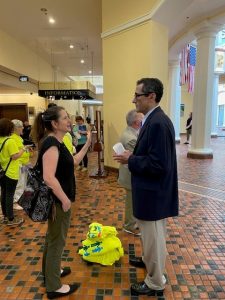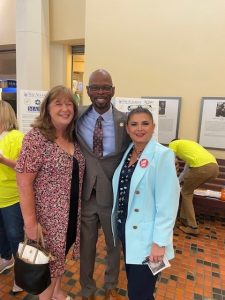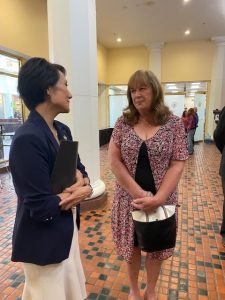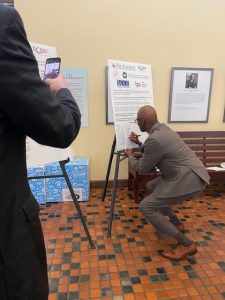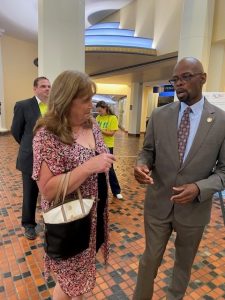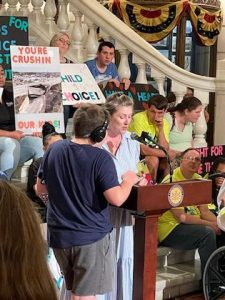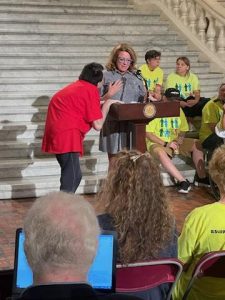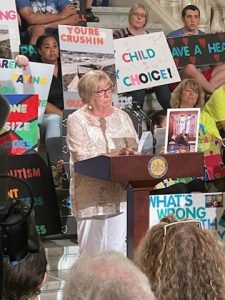ID/A Coalition
‘The Collapse is Here’: Individuals with ID/A, Families, & Providers Rally in Capitol for Increased Funding
Individuals with intellectual disabilities and autism (ID/A), their families, and ID/A service providers held a rally on June 28 at the state Capitol to urge lawmakers to increase funding for services and support in the 2023/24 budget. Providers told those assembled in the Capitol rotunda that nearly 60,000 Pennsylvanians are at risk because there are not enough direct support professionals (DSPs) to care for them. Advocates pressed lawmakers to restore the $170 million in funding to invest into fee schedule rates to support DSPs and services.
“Across the state, we are seeing that there is insufficient staff to meet needs or no staff at all,” said Richard S. Edley, PhD, Rehabilitation & Community Providers Association president and CEO. “DSPs are overworked and depleted and have compromised their own health to serve individuals with ID/A. Program closures have eliminated essential services and also affected the health of individuals served. Underfunding a system where individuals and families are already waiting for or losing needed services simply compounds a dire situation. We need to come together to help those in need.”
View news clips and photos of those who advocated at this event for ID/A services funding below.
WENY (Lilly Broadcasting)
VIDEO: “The Collapse Is Here” Intellectual Disability and Autism Care Providers Issue Dire Warning to Pa. Lawmakers
Penn Watch (Featuring RCPA President/CEO Richard S. Edley, PhD)
“The Collapse is Here”










